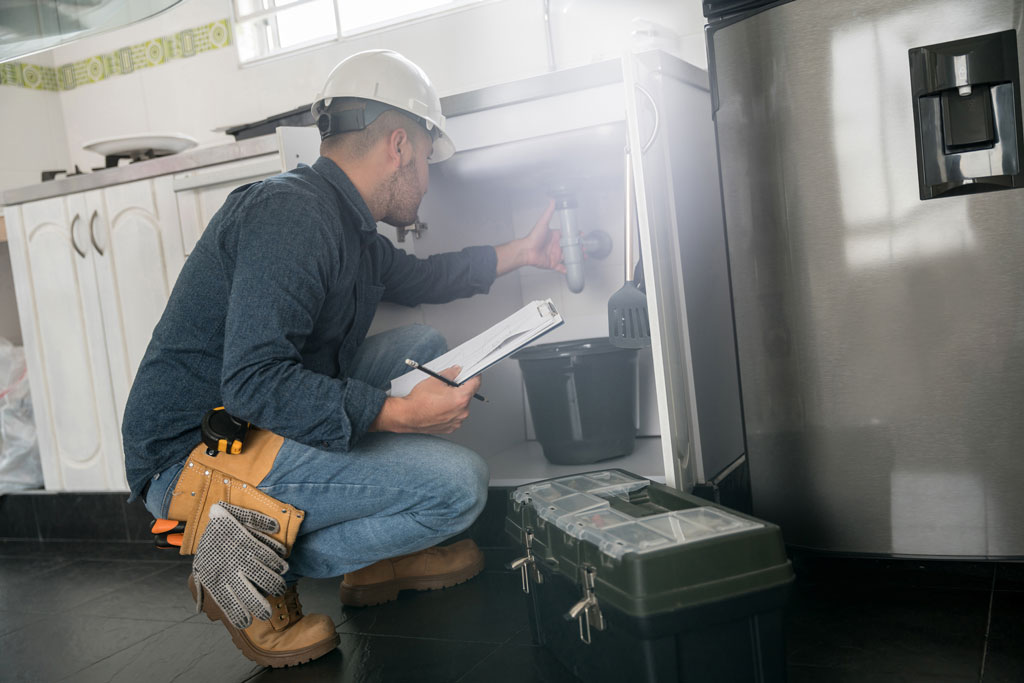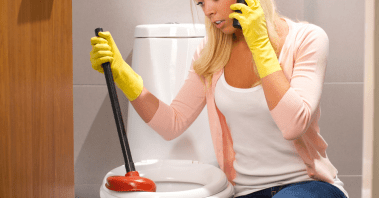How to Handle Emergency Plumbing Issues Before Professional Help Arrives
How to Handle Emergency Plumbing Issues Before Professional Help Arrives
Blog Article
The article on the next paragraphs involving Plumbing Emergencies: Tips on What To Do Before is quite fascinating. Don't miss out on it.

Pipes emergency situations can strike at any moment, creating anxiety and potential damages to your home. Whether it's a ruptured pipe, a clogged drainpipe, or a leaking faucet, recognizing just how to take care of the circumstance till an expert plumbing professional shows up can conserve you from further difficulties. This article supplies important emergency situation plumbing ideas to help you alleviate damages and restore control throughout a plumbing dilemma.
Switch off the Water Supply
The initial step in any kind of plumbing emergency situation is to shut down the supply of water. For local issues, such as a leaking tap or toilet, shut off the shutoff near the fixture. In the case of a major leakage or burst pipe, find your home's major water shut-off valve and transform it off promptly. Recognizing the location of these shutoffs ahead of time can save valuable time during an emergency.
Address Little Leakages with Momentary Repairs
Little leakages can quickly end up being considerable troubles if left unchecked. Use these momentary solutions till professional assistance shows up:
While these fixes aren't permanent, they can help reduce water loss and damage.
Unclog Drains Safely
A stopped up drainpipe can be an irritating and untidy problem. Right here's exactly how to tackle it:
If these techniques don't work, avoid making use of too much pressure, as it may intensify the blockage.
Handle Overflowing Toilets
An overruning bathroom can trigger instant turmoil. Right here's what you must do:
Shut Off Your Water Heater
In certain emergencies, such as a burst pipe, it's wise to shut off your hot water heater. This prevents getting too hot or damages to the device when water quits moving. Shut off the power supply to the hot water heater (electrical or gas) and let it cool off to avoid potential hazards.
Temporarily Quit a Ruptured Pipeline
A ruptured pipeline can cause considerable water damage in minutes. To mitigate the concern:
Call a professional plumber quickly to attend to the issue permanently.
Take Care Of Frozen Water Lines Thoroughly
In colder environments, icy pipes are an usual emergency situation. If you think an icy pipeline:
Protect against Additional Damage
Taking fast action to lessen damage can conserve you time and money in the future. Here's exactly how:
. Have an Emergency Pipes Kit
Prepare a fundamental plumbing emergency package to deal with small concerns efficiently. Your package must include:
Having these tools handy can make a significant difference in your capacity to manage emergencies.
Know When to Call an Expert.
While quick fixes can aid temporarily, specific pipes concerns require instant specialist attention. Call a plumbing if:.
Without delay contacting a professional guarantees the problem is solved appropriately and protects against further complications.
Final thought.
Plumbing emergencies can be frustrating, however with the ideal expertise and devices, you can take care of the scenario properly until help arrives. By turning off the water supply, resolving tiny leakages, and making use of short-lived solutions, you can decrease damages and maintain your home safe. Keep in mind, these ideas are momentary options; constantly seek advice from an accredited plumbing technician to deal with the source of the problem. Preparation and fast reasoning are your ideal allies in any type of plumbing emergency.
8 Helpful Tips for Managing Plumbing Emergencies at Home
If your plumbing system hasn’t failed once, wait for it because almost everyone has a story to tell. Sometimes, it could be simple emergencies such as a leaking pipe, a blocked cistern, or even a big burst pipe. In situations like this, you need to have some handy tips to save you some money and from possible damages.
Take care of minor issues early.
Sometimes, you could have avoided an emergency by taking proactive measures while it was still early. Some major plumbing emergencies can be a result of an ignored minor issue. We recommend that you have items like plumbing tapes and other related items. A plumbing tape can allow you to manage minor leaks before the plumber arrives.
Cut off the water supply.
This tip is essential in almost any type of leakage problem. For problems like minor leakages in the toilet or kitchen, turn off the supply that takes water to the affected pipes. If the leakage is a major pipe, you must shut off the supply valve to the entire building. This will help you avoid flooding your home and neighbors if you share a flat.
Know your plumbing system
Folks typically move into a new apartment without understanding the water supply around the building. This can prove disastrous if a water emergency arises and the plumber is far away. The previous tip will prove useless if you don’t practice this one. More importantly, know where your water shut-off valve is located – you’ll need that knowledge to prevent potential home floods.
Have some common handy tools
There are lots of plumbing emergencies that you can handle without hiring a plumber. That’s why you must keep some tools available always. Some tools that you can use to fix simple plumbing emergencies easily include plumbing tapes, screwdrivers, thread seal tapes, plungers, pliers, tape measures, and rubber gloves.
Insulate your pipes from cold
You’ll save yourself from many plumbing expenses if you protect your water pipes from the cold. This is because of the harmful effects that cold weather can have on your pipes. During winter, your pipes can burst from being overly expected to freezing temperatures. So, make sure insulators are there to keep the pipes working correctly.
Avoid practices that will clog your toilet.
Many people indulge in practices that can damage the plumbing system of the entire building. One of these is when they use their toilet to dispose-off garbage. They flush all kinds of things, such as paper towels, bandages, hairs, female sanitary products, etc., down the toilet. This will block your toilet in the long run, incurring unnecessary expenditures. Dump such waste in the trash instead.
Check your dials regularly.
Sometimes, there could be leakages in your home without noticing them in time. So, constantly monitor your water meter dial. If the dial is reading when there is nobody using water, this is an indicator that there is leaking. Check for leaks immediately. Call a plumber as soon as possible if you can’t find any.
https://www.constructionplacements.com/8-helpful-tips-for-managing-plumbing-emergencies-at-home/

As a fervent person who reads about Expert Tips for Managing a Plumbing Emergency Until Help Arrives, I thought sharing that piece was sensible. So long as you enjoyed our article please don't forget to pass it around. Thank-you for taking the time to read it.
Call Today Report this page